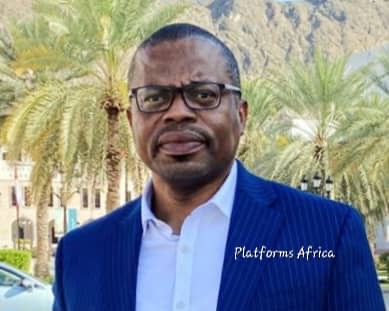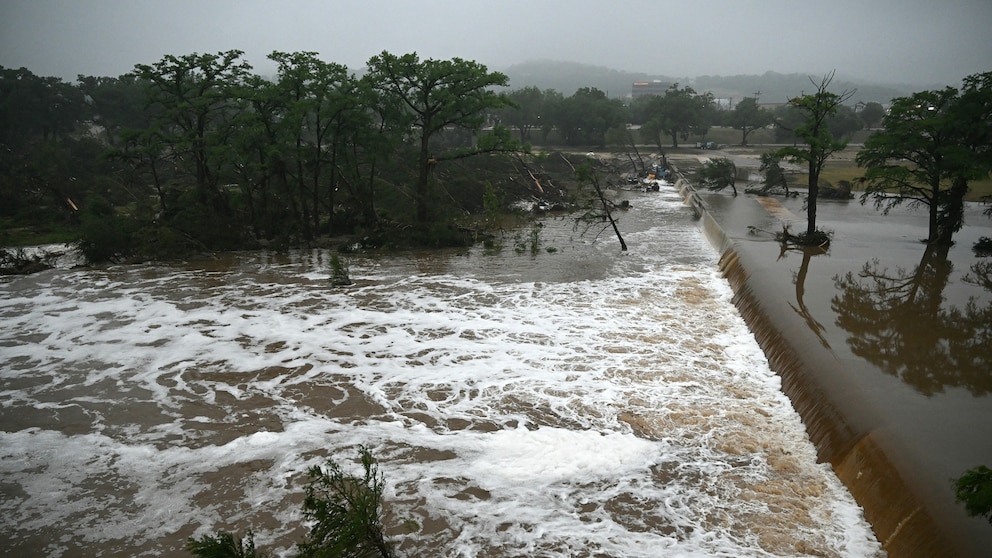As the global threat of climate change continues to cast its shadow, countries find themselves grappling with an array of challenges stemming from this environmental crisis.
Nigeria, in particular, has not been spared from the far-reaching consequences of climate change that have impacted Africa and the world at large.
The implications of this phenomenon are extensive, ranging from food insecurity and water scarcity to floods, pollution, health concerns, deforestation, desertification, economic instability, displacement, and infrastructure damage.
READ ALSO:
Ekpo Pledges Increased Gas Investments for Improved Power Supplies
JUST IN: Coup Rocks Gabon After Ali Bongo’s 3rd Term Re-Election
Police Bust Gay Wedding In Delta, Arrest Over 100 Suspects
BREAKING: FIFA Suspend Spanish Football Chief Rubiales After World Cup Kiss
Meet Neeraj, Serial Olympic Gold Medalist With 88.17m Throw At Budapest
The cumulative effect of these challenges has contributed to a lowered standard of living for countless Nigerians, and in some tragic cases, the loss of lives.
A few days ago, reports emerged indicating that a minimum of nine states in Nigeria are confronted with a substantial risk of significant flooding. This looming threat stems from Cameroon’s announcement of their intention to release water from the Lagdo Dam. The historical pattern of the Dam’s opening has led to widespread and severe flooding across multiple Nigerian states, resulting in the displacement of residents and causing extensive damage to vital infrastructure, residences, and agricultural lands. These distressing occurrences have also sparked health emergencies, water pollution, economic setbacks, and heartrending loss of both lives and property.
READ ALSO:
BREAKING: FIFA Suspend Spanish Football Chief Rubiales After World Cup Kiss
UK Doctors Carry Out First Human Womb Transplant in History
The escalated frequency and heightened intensity of heavy rainfall events, partially attributed to climate change, appear to be a driving force behind Cameroon’s decision to execute the water release from the Dam. The far-reaching consequences of this decision have a pronounced impact on Nigerian states that are positioned along the banks of the River Benue.
Dr. Ishaq Kunle Salako’s Appointment: A Step Towards Climate Resilience?
Recently, on August 21, 2023, a significant development took place that holds the promise of addressing Nigeria’s climate-related issues more effectively.
Dr. Ishaq Kunle Salako was appointed as the Minister of State for Environment and Ecological Management under the administration of President Bola Ahmed Tinubu.
While Dr. Salako’s background as a medical doctor might have initially suggested a placement within the health sector, his appointment to this critical environmental portfolio is not without merit.
Dr. Salako’s wealth of experience, gained from his tenure as Commissioner for Health, Agriculture, and Housing in Ogun State.
During this time, I extensively documented his tenure as a commissioner. More recently, I conducted an in-depth interview with him, analysing the current state of Nigeria’s health sector on Rockcity 101.9 FM, Abeokuta. This was during his tenure as the Chairman of the Ogun State Hospitals Management Board. As a result, I have gained valuable insights into his competence in his current position.
Dr Salako after interview on Rockcity 101.9 fm in Abeokuta
This positions him well to lead the charge in managing the Ministry of Environment and Ecological Management. His prior responsibilities and leadership roles have offered insights into the intricacies of various sectors that are deeply interconnected with climate change concerns.
In his address when he assumed office at the Ministry’s headquarters, Dr Salako said: “As a public health physician, I know the importance of the environment, I have some knowledge of the environment and I believe that we will work together to deliver on the mandate of the President in the environment sector.
In addition to shouldering the responsibility of managing a ministry that significantly impacts the lives of Nigerians, Dr. Salako faces the task of justifying the decision to appoint a minister from the historically marginalised Ogun West Senatorial district. Notably, this marks the first instance of such an appointment since Nigeria’s return to democratic governance in 1999.
The trio of ministers from Ogun State holds a position of prominence, given their strategic roles that hold the key to determining the success or challenges of the President Tinubu administration.
Mr. Wale Edun takes charge of the country’s Ministry of Finance and holds the role of Coordinating Minister of the Economy, while Dr. Bosun Tijani, a technocrat hailing from Ogun State, oversees the Ministry of Communication, Innovation, and Digital Economy.
The history of Ogun State indigenes assuming significant roles within Nigeria’s governance is noteworthy. It is my anticipation that Dr. Salako, Mr. Edun, and Dr. Tijani will approach their duties with dedication, selflessness, and patriotism as they contribute to the President Tinubu administration’s renewed hope.
In close collaboration with these fellow ministers from Ogun State and the remaining 42 members of the cabinet, Dr. Salako should strive to steer the Ministry of Environment and Ecological Management in the right direction to effectively address the pressing challenges posed by climate change.
Dr Ishaq Kunle Salako
Tackling Corruption and Ensuring Accountability
One of the pressing issues that Dr. Salako must confront head-on is the improper utilisation of funds allocated for addressing climate change challenges. Reports of misappropriation of the Ecological Fund, intended to tackle natural disasters and ecological crises, have raised serious concerns. Over the years, both state and local governments have struggled to account for significant sums of this fund, contributing to a lack of progress in mitigating the impacts of climate change.
According to a Daily Trust report, State governments have failed to account for over N1 trillion from the Ecological Fund, designated to address natural disasters in Nigeria. This amount constitutes 2.2 percent of the total budget allocated for ecological and disaster management in 2018, 2019, and 2023.
Within this context, N462 billion was reportedly allocated to the Ecological Fund in the N21 trillion 2023 budget. This matter becomes more pressing as erosion, flooding, and ecological disasters severely affected certain states during the 2022 rainy season.
Despite the existence of the Ecological Fund, BusinessDay’s investigations highlight its failure to adequately address the flood crisis, which has displaced over 1.3 million people across 33 states.
The House of Representatives has initiated a comprehensive inquiry into the fund’s utilisation over the past decade. Meanwhile, the presidency consistently points to the mismanagement of the fund by state and local governments who were the primary beneficiaries, specifically designated for disaster management.
Tracing the fund’s history in a BusinessDay report, it was established in 1981 through the Federation Account Act. Initially, 1 percent of the Federation Account’s revenue was allocated to the fund. This allocation was later increased to 2 percent of federal earnings in 1992 and required presidential approval for release. In 2002, the directive of former President Olusegun Obasanjo revised the fund’s allocation, sharing the 2 percent ecological fund and 1 percent derivation among the three tiers of government.
Statutorily, the revenue allocation formula designates 2.32 percent of derivation funds for ecology and disaster management, distributed across the three tiers of government. Of this, 0.72 percent goes to the 36 states and the FCT, 0.6 percent to the 774 local governments, totaling 1.32 percent.
The federal government retains one percent, with specific allocations to agencies including the National Emergency Management Agency (NEMA), the North East Development Commission (NEDC), the National Agricultural Land Development Authority (NALDA), and the National Agency for the Great Green Wall (GGW), totaling 0.55 percent.
In an article in the Premium Times newspaper, Oluwole Ojewale, the ENACT Organised Crime Observatory Coordinator at the Institute for Security Studies (ISS), emphasised Africa’s message at the United Nations Climate Change Conference (COP27) in Egypt: nations responsible for climate change must provide financial support.
Ojewale however stressed the importance of transparent management of international financing and the potential harm of fraud and corruption on climate change interventions, calling for robust integrity and oversight frameworks for ecological funds to mitigate misuse.
The new Minister of State for Environment and Ecological Management must prioritise fostering accountability and transparency within the various agencies under his Ministry to ensure the responsible utilisation of the Ecological Fund. As part of this effort, he should establish a comprehensive framework to meticulously track the allocation and disbursement of funds to the 36 States and the 774 local government areas across Nigeria.
It is also imperative for Dr. Salako to actively endorse and lend his support to the National Assembly inquiries into the utilisation of the Ecological Fund spanning the last decade.
Engaging Stakeholders and Leveraging Expertise
To comprehensively address the challenges posed by climate change in Nigeria, the Minister should proactively engage with key stakeholders, including relevant government bodies, the media, research institutions, Civil Society organisations, environmental experts, Community Based Organisation, and citizens. By capitalising on this collaborative approach, he can harness the collective wisdom and expertise of these stakeholders to effectively tackle the multifaceted issues associated with climate change in the country.
Collaborating with anti-graft agencies such as the Economic and Financial Crimes Commission (EFCC) and the Independent Corrupt Practices and Other Related Offences Commission (ICPC) can aid in identifying and prosecuting those who have exploited the system for personal gain.
While addressing his Ministry’s staff, Dr. Salako emphasised, as reported by The Punch: “I’m going to be tasking all of you and it is not going to be business as usual. For the research department, if there is no research and you are doing something, then there is no basis for it because there is no evidence to show for it. And research is the basis for evidence and I hope the research department will be up and doing, and we must work as a team,” he affirmed.
In order to attain these objectives, the new Minister should also prioritise research endeavours that center on environmental issues and climate change, encompassing tertiary institutions and other research organisations within Nigeria.
The Centre for Journalism and Innovation and Development (CJID) for instance has demonstrated a commitment to fostering positive change over the years, with investments in stakeholder training, citizen engagement, and research focused on climate change issues in Africa.
Since Dr. Salako promised research-based reforms, the Minister should consider a thorough review and consideration of the audit report from the Nigeria Extractive Industries Transparency Initiative (NEITI). This report shed light on instances where government agencies diverted and misappropriated substantial sums of money from the Ecological Fund, underscoring the need for remedial action and increased vigilance.
Collaboration and open communication will facilitate the development of effective strategies and solutions.
Leveraging Technology for Transparency
Technology can play a pivotal role in promoting accountability and transparency in the allocation and utilisation of the Ecological Fund.
For example, the Minister could establish a collaboration with the BudgIT foundation, leveraging their Tracka and GovSpend projects. These initiatives aim to ensure that budgetary allocations are tracked and properly utilised, reducing the potential for mismanagement.
The role of data and digital technology in environmental management is crucial.
Therefore, it would be appropriate for the Ministry to collaborate with the Paradigm Initiative and Dataphyte to capitalise on this opportunity.
This partnership would serve to enhance accountability and transparency in the allocation and utilisation of the Ecological Fund.
A Call to Action
The urgency of addressing climate change in Nigeria cannot be overstated.
Dr. Ishaq Kunle Salako’s appointment as Minister of State for Environment and Ecological Management presents a crucial opportunity to advance climate resilience.
In the face of a changing climate, Nigeria’s leadership must rise to the occasion. Dr. Salako’s appointment and the collaboration with all stakeholders and leveraging technology are steps in the right direction, but the road ahead requires unwavering dedication and collective action.
Only by uniting in purpose and prioritising the well-being of the nation and its citizens can Nigeria overcome the challenges posed by climate change.
Jamiu Folarin, a lecturer at Crescent University, writes in from Abeokuta. Ogun state





